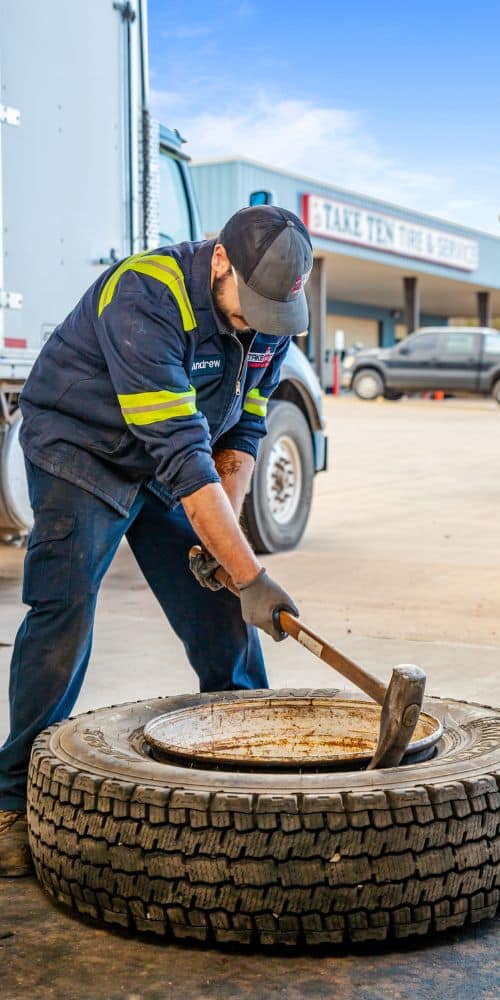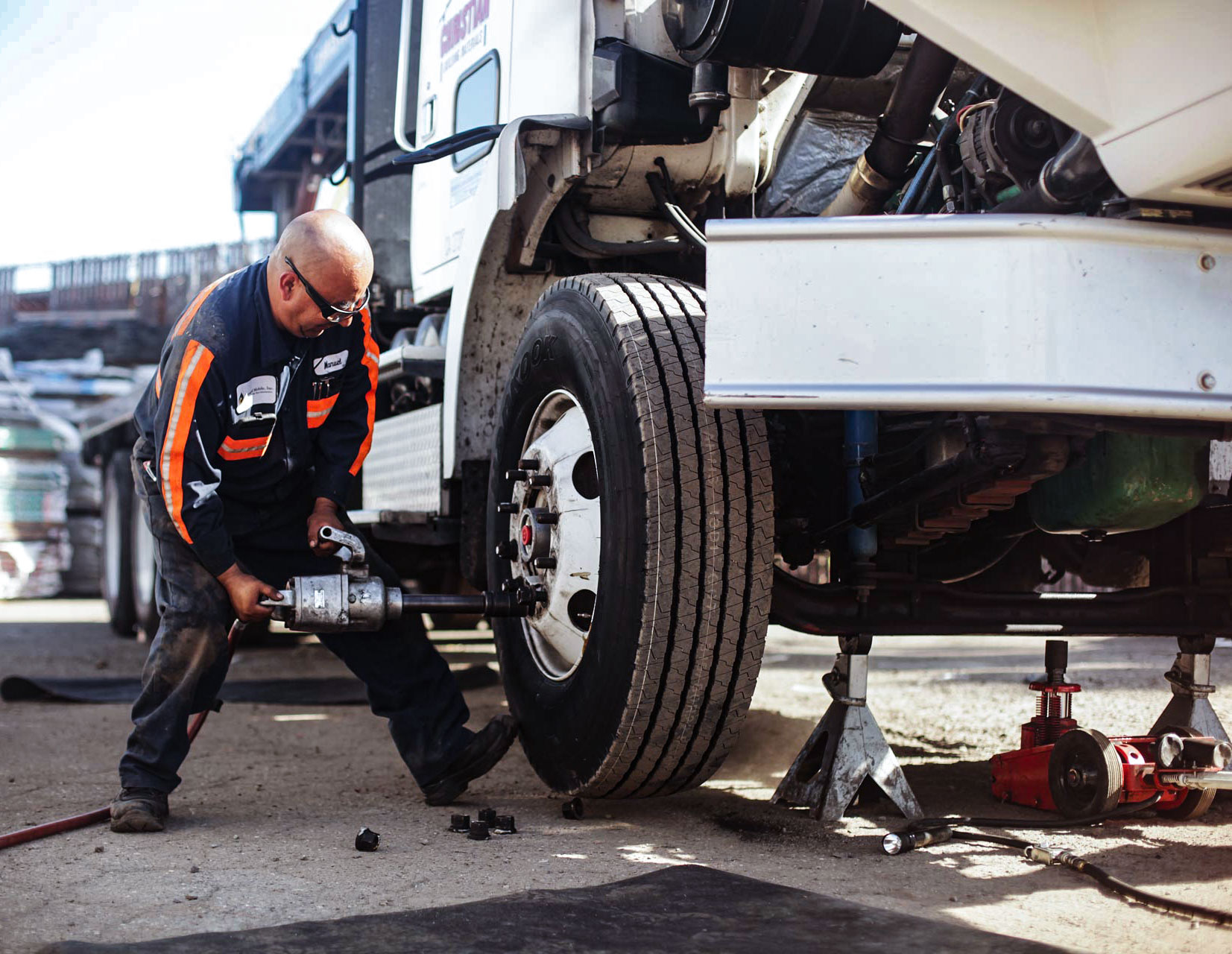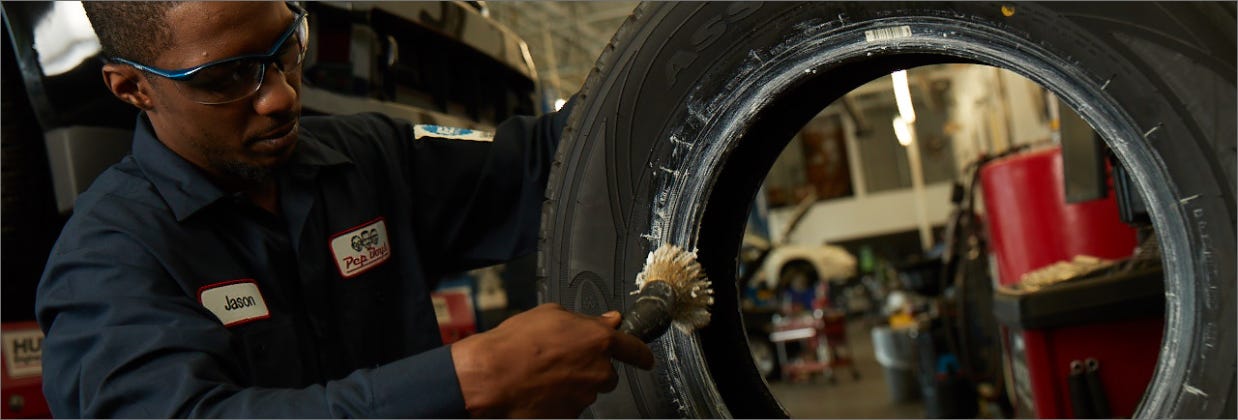Improve Your Drive: Top-Notch GMC Tires Service at Morris Tires
Improve Your Drive: Top-Notch GMC Tires Service at Morris Tires
Blog Article
Tire Solution: The Influence of Climate Condition
When it concerns guaranteeing ideal performance and safety and security on the road, understanding the impact of weather on tire solution is crucial. From scorching warm to icy roads, each weather component can substantially affect tire functionality and general driving experience. By diving right into the results of varying climate conditions on tires, drivers can acquire useful insights that might enhance their vehicle's performance and durability. In this conversation, we will certainly check out the complex connection between climate condition and tire solution, shedding light on the significance of weather-specific tire maintenance methods and factors to consider.
Warm and Tire Efficiency
When exposed to high temperatures, tires experience changes in performance that can significantly impact vehicle security and handling. The warm generated from prolonged driving or heat conditions triggers the tire rubber to soften, resulting in reduced walk life and enhanced wear. As the rubber becomes softer, the tire's hold on the roadway diminishes, impacting stopping ranges and overall traction. In severe cases, excessive warm can also create tire blowouts, posturing a serious security risk to the car and its owners.

Cold Climate Impacts
Winter conditions can have a significant influence on tire efficiency and security. As temperatures decline, tire rubber can set, leading to lowered grip on icy or snow-covered roads. In winter, tires may also lose atmospheric pressure a lot more quickly, which can affect taking care of and gas performance. In addition, chilly temperature levels can cause tire sidewalls to stiffen, boosting the risk of damages from holes or various other road hazards.
To reduce the results of winter on tires, it is vital to consistently examine tire stress and inflate them to the manufacturer's advised degrees. Utilizing winter months or all-season tires made for cold weather condition conditions can also improve grip and grip on icy or snowy roadways. Proper tire maintenance, consisting of regular evaluations for wear and damage, becomes much more essential during cooler months to make sure optimal performance and safety and security.
Rainy Conditions Impact
Tires with damaged footsteps are a lot more susceptible to hydroplaning, where a layer of water builds up in between the tire and the road surface area, leading to loss of traction. To battle this, motorists need to routinely examine their tires for sufficient tread deepness and take into consideration spending in tires especially made for damp conditions.
Additionally, rainy climate can additionally see this reduce exposure, making it testing for chauffeurs to see the roadway in advance clearly (GMC Tire Service). In such problems, it is important to adjust driving rates accordingly and keep a risk-free complying with range to enable unexpected quits. Correctly filled with air tires can also assist in keeping control on damp roadways by providing far better handling and grasp
Snow and Tire Safety And Security
Snow-covered roads present distinct challenges for chauffeurs, highlighting the significance of appropriate tire choice and upkeep. When driving in snowy problems, having the appropriate tires can make a substantial difference in safety and performance. Winter tires are designed with special rubber compounds and tread patterns to give better grip on snow and ice compared to all-season tires. The much deeper footsteps and sipes of winter months tires view it now help hold the road better, decreasing the threat of sliding and gliding.

It is important to comply with maker directions when making use of and mounting tire chains to avoid damage to the tires and car. By selecting the appropriate tires, keeping appropriate rising cost of living, and taking into consideration additional traction aids like tire chains, chauffeurs can boost their safety and security when browsing snow-covered roads.
Weather-Related Tire Maintenance
When encountered with different climate condition, correct tire upkeep becomes a vital aspect of car security and performance. Weather-related tire upkeep encompasses a series of techniques focused on making sure optimal tire feature and durability in various climate scenarios. One vital facet of weather-related tire maintenance is tire stress policy. Fluctuating temperatures can trigger tire stress to vary, impacting traction and gas effectiveness. Consistently adjusting and checking tire pressure according to manufacturer suggestions is important for secure driving in changing climate condition. Additionally, tire walk deepness plays a significant role in dealing with various weather condition components. Tires with ample step deepness provide far better hold on wet or icy roads, reducing the danger of skidding or hydroplaning. Inspecting tire tread consistently and changing tires when walk wear reaches a certain depth is vital for preserving grip view website and stability in damaging climate. By prioritizing weather-related tire upkeep, motorists can improve safety and security, enhance vehicle efficiency, and prolong the lifespan of their tires.
Verdict
In final thought, climate condition have a considerable influence on tire efficiency and safety and security. From warmth affecting tire pressure and use to cold weather condition minimizing grip, it is vital to take into consideration the weather when keeping and making use of tires. Stormy problems can lower grip and result in hydroplaning, while snow can increase the risk of crashes if tires are not correctly equipped. Weather-related tire upkeep is essential in guaranteeing optimum performance and safety when traveling.
In this discussion, we will check out the elaborate relationship in between climate conditions and tire solution, losing light on the relevance of weather-specific tire maintenance techniques and considerations.

Report this page